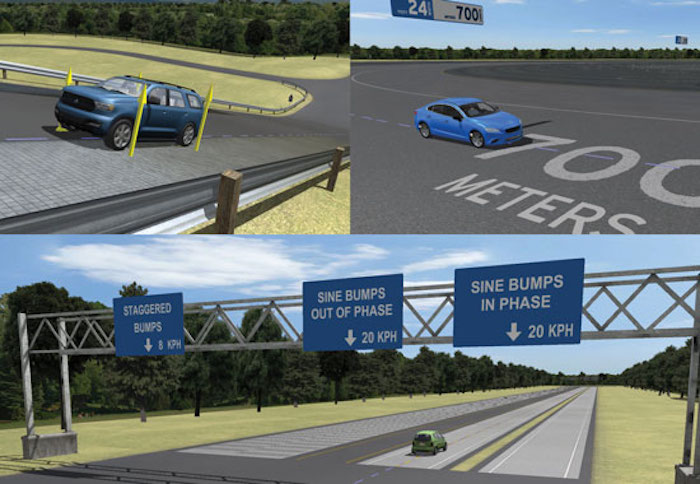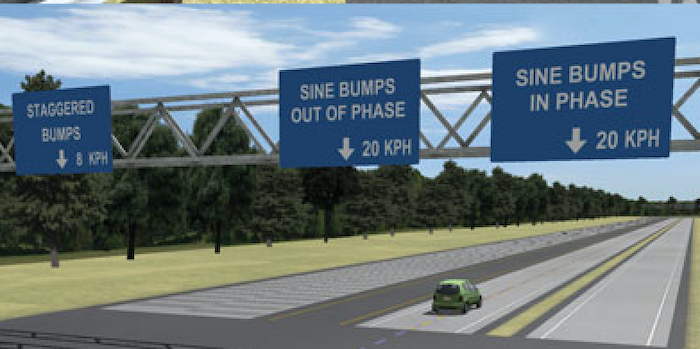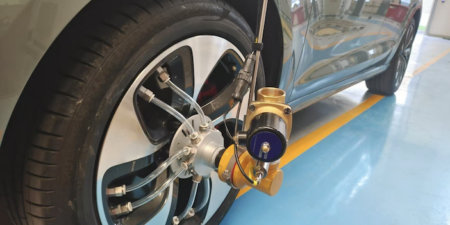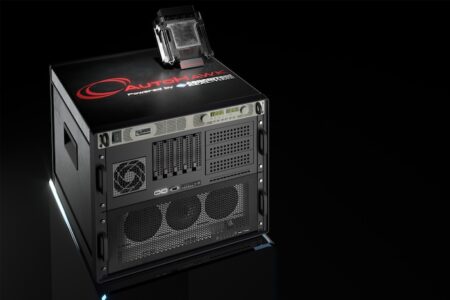Mechanical Simulation Corporation has released the 2021.0 versions of its range of vehicle simulation tools. The VehicleSim software products – CarSim, TruckSim and BikeSim – feature high-fidelity math models for vehicle dynamics that can simulate physical test results. The mathematical models run sufficiently quickly to support real-time simulation with hardware in the loop (HiL), and can support optimisation projects involving hundreds of thousands of simulations.
This release focuses on scenes and scenarios that can improve ease of setup and testing. The user interface and math models have improved third-party software support, according to the company.
The databases include a new proving ground environment with nine testing areas, including a five-mile circular track, a hill grade surface, an on-grade split-mu surface, a split-mu surface, a rough road section, a 1000m straight, a 500m skid pad, a handling course, and an urban multi-lane environment. The environment also includes more than 600 built-in paths sections that may be combined as needed, or users can create their own.

Mechanical Simulation Corporation recognises that no single company can create a tool that will perform all the testing necessary to bring a vehicle to market. For this reason, the VehicleSim range offers tight interfaces with third-party software from technology partners such as Epic Games, NVIDIA, Atlatec, Foretellix, monoDrive, Siemens and CARLA. This gives users the ability to use a range of development tools for tasks including photo-realistic visualisation, high-fidelity mapping, scenario setups and sensor modelling which can be used within the vehicle simulation environment.
The vehicle math models have also been improved, including the steering system calculations. VS Commands, the internal end-user coding language, has been extended and reworked for improved parsing and performance. This rearchitecting is also intended to give users a better experience and a foundation for more user-definable features. The software has received more support for built-in controllers for multiple-vehicles simulations, while Linux support for FMI/FMU gives users another testing and simulation option.





